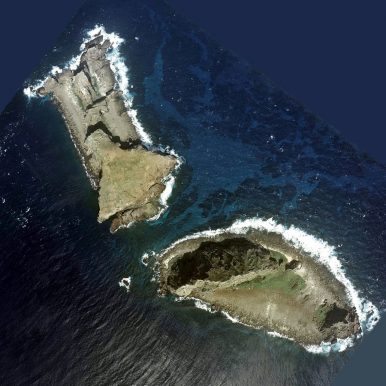By Ankit Panda
The Japanese government will stand up a new police unit specializing in the patrol of the disputed Senkaku Islands in the East China Sea, Japan’s public broadcaster NHK reported on Monday. The new unit will be equipped with submachine guns and helicopters.
The Senkaku Islands, which are administered by Japan, are also claimed by China as the Diaoyu Islands. Chinese maritime law enforcement vessels and People’s Liberation Army Navy vessels have sailed near the islands to press Beijing’s claim in the past.
According to Japan’s National Police Agency, the unit may include as many as 159 police officers, with the objective of inhibiting landings on the islands.“Assuming scenarios that include illegal landing by an armed group, highly trained members equipped with sub-machine guns will be deployed,” NHK said in its broadcast. The National Police Agency has submitted a new budget request to set up the unit.
For Tokyo, the creation of a new law enforcement unit to monitor any threats to the Senkakus would create additional flexibility below the threshold of directly involving the Self-Defense Force, the country’s military.
The Japanese coast guard conducts patrols at sea in the area, but this new police unit would likely be based nearby and respond to any initial amphibious ingress attempts on the disputed islets.
In August 2012, right before Japan’s decision to nationalize the islands and on the 67th anniversary of Japan’s surrender in the Second World War, a group of Chinese activists landed on one of the disputed islets in the Senkaku group. The Japan coast guard, which used water cannons to dissuade the activists, failed to stop the landing, which resulted in the group plating a Chinese flag on the islands.
The Japanese government has prioritized the East China Sea in its recent defense budgets, which have increased year-on-year under the current prime ministerial term of Shinzo Abe, who was reelected for a second nonconsecutive term in December 2012.
Earlier that year, the previous Japanese government under the Democratic Party of Japan — a now-defunct opposition party — had nationalized the islands from a private owner, sparking a sharp Chinese backlash. Relations between Tokyo and Beijing remained strained through 2013 and 2014 as a result.
In 2013, China declared an Air Defense Identification Zone encompassing much of the East China Sea, including the airspace over the Senkakus. Japan has not recognized or complied with the Chinese ADIZ.
In 2014, during a visit to Japan, U.S. President Barack Obama offered assurances that all territory under Japan’s administration — including the Senkakus — would fall under the ambit of the 1960 U.S.-Japan mutual security treaty.

No comments:
Post a Comment